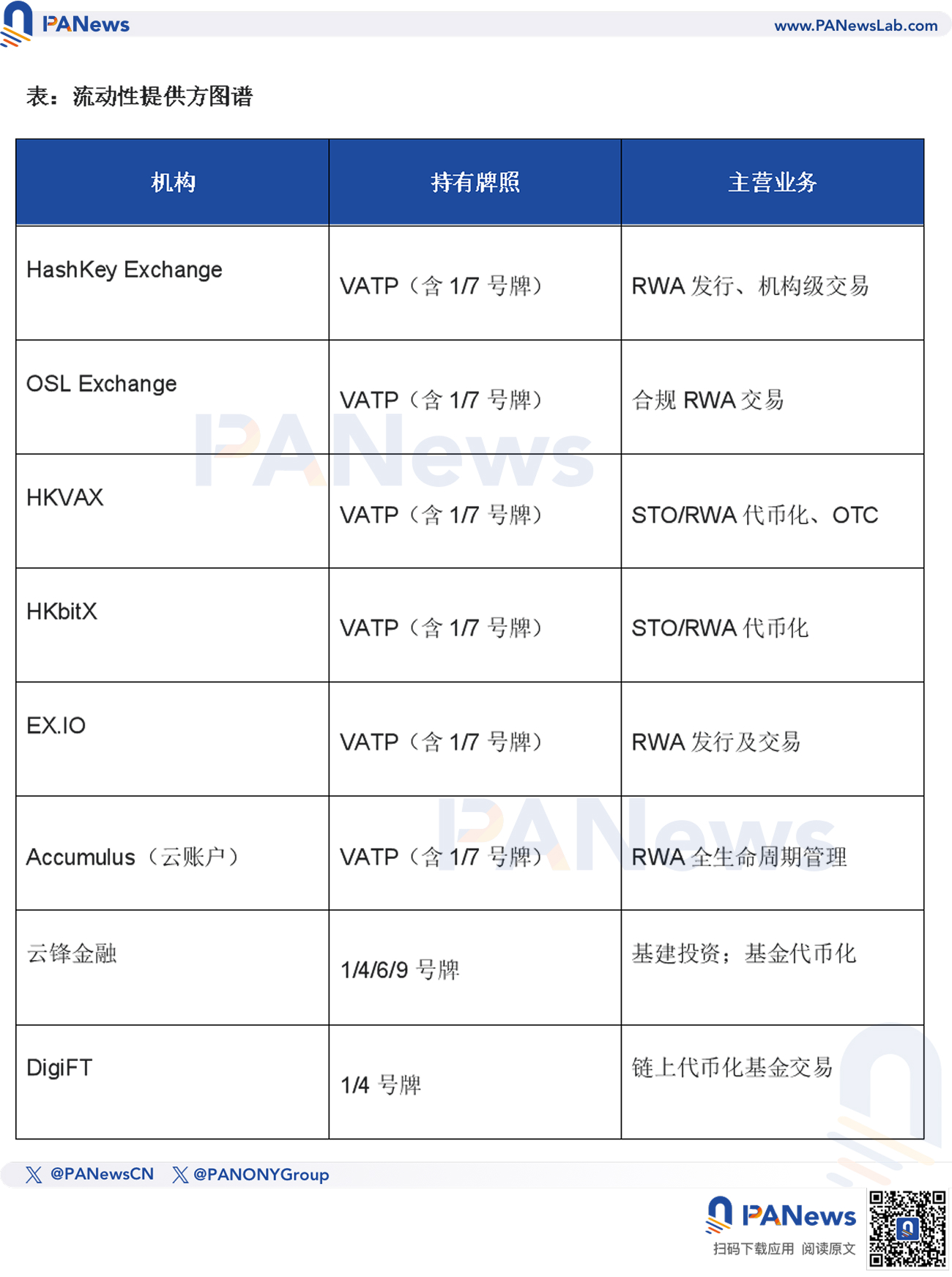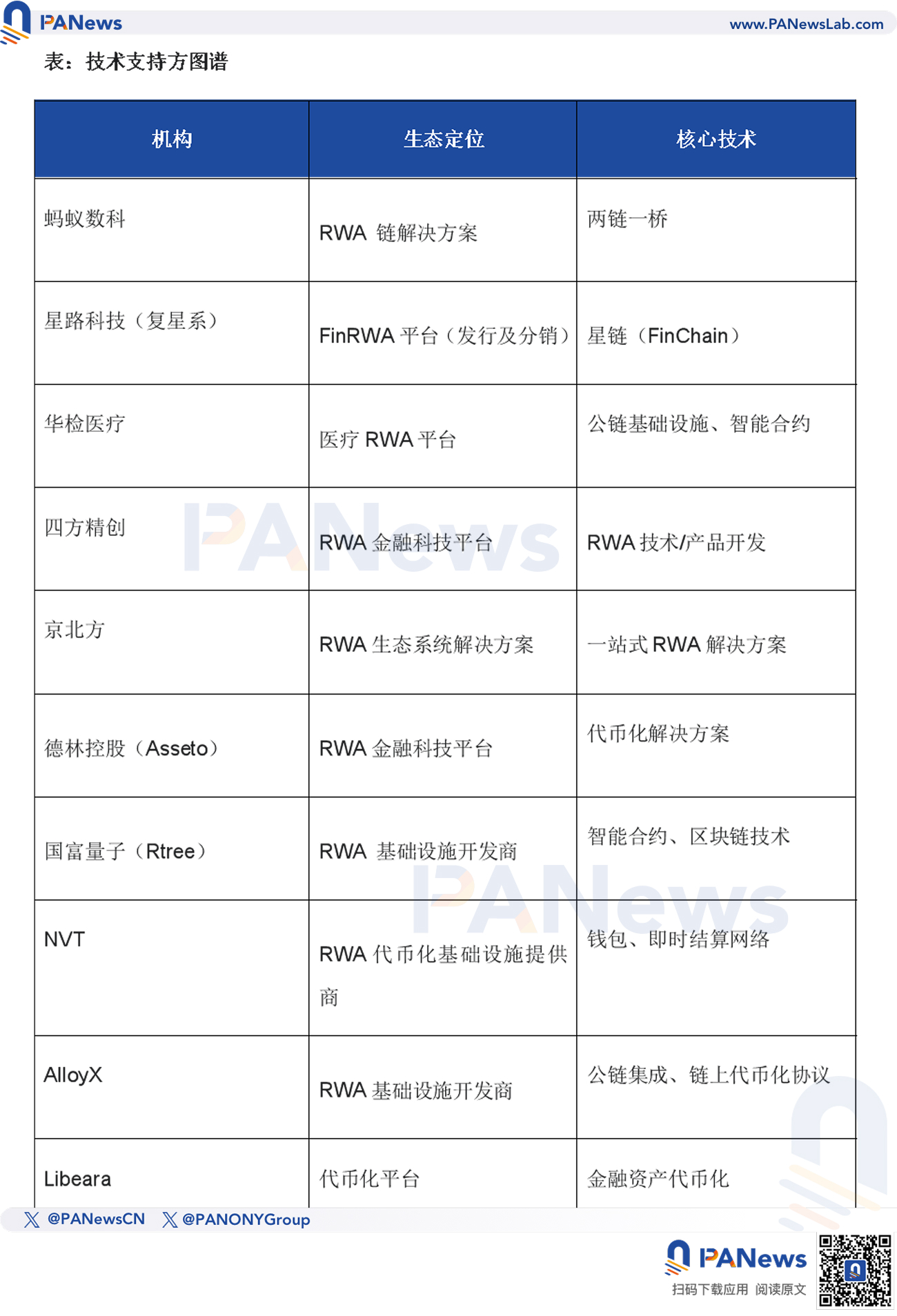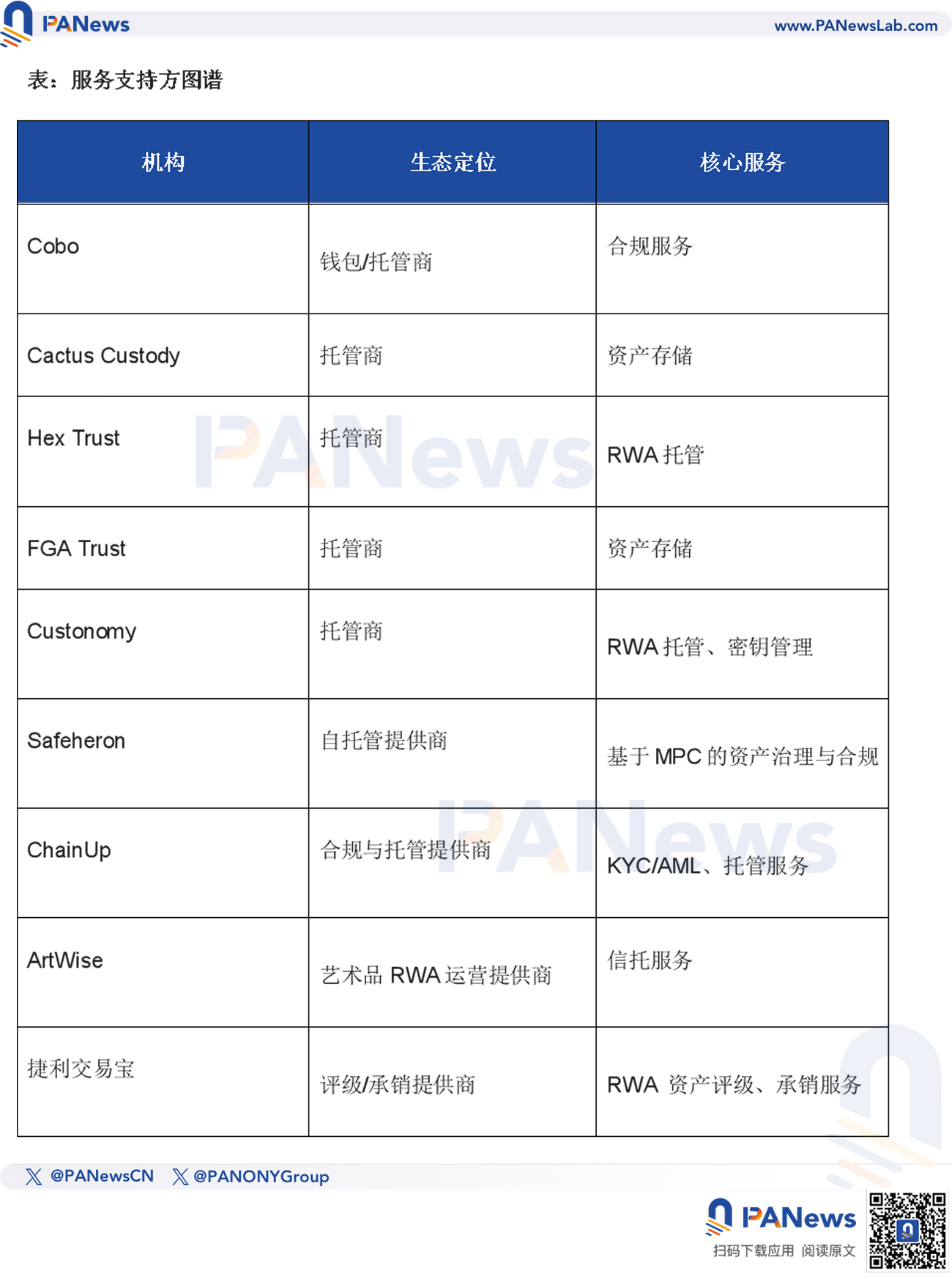The RWA business in Hong Kong is thriving to the extent that regulatory agencies have begun to provide window guidance, prompting some brokerages to proactively cool down. However, in the capital market, related concept stocks continue to surge. On September 22, two Hong Kong-listed companies, Huajian Medical and Chuangsheng Group, announced the signing of a $1.5 billion strategic cooperation agreement for the RWA tokenization of innovative drug pipeline assets. On September 23, as the Hong Kong stock market opened, Chuangsheng Group's stock price surged nearly 10%, and Huajian Medical's market value has skyrocketed by HKD 14 billion within two months since announcing its entry into the RWA field.
Along with the rising market value, the enthusiasm of market participants in Hong Kong is also increasing. PANews previously published an article introducing the positioning of Hong Kong-listed companies entering the RWA space. This article will deconstruct the business support entities in the Hong Kong RWA market, presenting readers with a more intuitive ecological picture of RWA in Hong Kong.
The RWA industry includes two main entities: product issuers and business support entities. Among them, business support entities can be further divided into three ecological niches: "liquidity providers" that facilitate asset circulation and price discovery; "technical support providers" responsible for building underlying infrastructure and technical architecture; and "service support providers" that offer compliance, custody, and security guarantees.
Liquidity Providers
Liquidity providers play a crucial role in the RWA market, serving as the core hub connecting on-chain tokens with off-chain traditional assets, facilitating asset circulation and price discovery.
Licensed Virtual Asset Trading Platforms (VATPs) are compliant venues for RWA to enter secondary market trading and pricing, and they are the main channels for RWA circulation. Compared to decentralized exchanges (DEXs), regulated centralized exchanges (CEXs) have inherent advantages in customer due diligence (KYC)/anti-money laundering (AML) and asset custody and regulatory review, which align well with the strict compliance requirements of RWA.
Licensed platforms can not only provide automated trading services for RWA but also offer over-the-counter (OTC) services for institutions. However, it is worth noting that the act of "on-chaining" RWA is not merely a data transfer; it also involves macro-level games. Some analyses point out that when sovereign or local assets are "on-chained" in RWA form, the pricing power of these assets may shift from domestic to offshore "cross-border" cryptocurrency exchanges, potentially posing challenges to economic security and financial stability within the jurisdiction. Therefore, while Hong Kong encourages the development of the RWA market, it also employs a strict licensing system to manage potential macro risks.
As a representative of Hong Kong VATPs, HashKey Exchange's RWA business primarily targets high-net-worth individuals and institutional investors. It has collaborated with GF Securities (Hong Kong) to issue the first daily redeemable tokenized security, "GF Token," marking a key step for traditional financial institutions in RWA issuance. This project is not only a technological innovation but also a benchmark case of the deep integration of "traditional finance + Web3," demonstrating to the market that traditional financial institutions can embrace tokenization under a clear regulatory framework.
As another representative of local CEXs in Hong Kong, OSL Exchange plays a core role in expanding the RWA retail market. OSL has developed a one-stop platform called "Tokenworks," which encompasses RWA tokenization, custody, and distribution. It has collaborated with Huaxia Fund (Hong Kong) to launch a tokenized money market fund product within the Monetary Authority's "Ensemble" regulatory sandbox project. This fund is the first tokenized fund product aimed at retail investors in Hong Kong, expanding the audience for RWA from institutional and professional investors to a broader retail group.
Currently, six licensed CEXs in Hong Kong have expressed their commitment to developing RWA business. Additionally, participants such as Yunfeng Financial and DigiFT are also acting as liquidity providers in the primary and secondary markets.

Technical Support Providers
The value of RWA lies in its technological core, which achieves the digitization, programmability, and efficient circulation of assets through blockchain technology. In Hong Kong's RWA market, technical support providers are the cornerstone builders of this process, primarily consisting of participants developing the underlying architecture for RWA, including smart contracts, on-chain protocols, and tokenization platforms.
Within the ecosystem of technical support providers, the Alibaba Group is laying out its strategy through a dual-line approach. Yunfeng Financial focuses on infrastructure investment, while Ant Group emphasizes the construction of foundational infrastructure, with its core technology platform being "Two Chains and One Bridge," which includes the "Asset Chain," "Transaction Chain," and the "Trusted Cross-Chain Bridge" connecting the two. This system aims to standardize and digitize the physical assets of mainland enterprises while tokenizing traditional financial capital to achieve efficient capital circulation. The cross-border RWA project of Longxin Technology's charging piles is a successful practice of this technological system and has been selected as a representative case in the Monetary Authority's "Ensemble" regulatory sandbox. Ant Group has been active in several new energy asset tokenization projects, providing feasible financing solutions for new energy projects within China.
On the other hand, the Fosun Group is also accelerating its layout in the RWA field. Fosun International has registered multiple trademarks in Hong Kong, including "Fosun Wealth RWA," and the group’s incubated Xinglu Technology is the technological core of its RWA strategy. Xinglu Technology has officially launched FinChain and successfully secured financing. This platform focuses on providing intelligent wealth management services to global investors and has developed Asia's first full-process technical solution for tokenized Hong Kong stocks. Additionally, Fosun Wealth Holdings has also become a distributor of tokenized structured notes. The various initiatives of the Fosun Group not only reflect its determination to enter the RWA market but also provide a new reference path for traditional financial institutions in terms of RWA technology and business.
Moreover, there are over a dozen other technical support providers active in Hong Kong's RWA market.

Service Support Providers
The growth momentum of RWA stems from trust, which must be built on reliable compliance and security. In Hong Kong's RWA market, service support providers are the compliance guardians that ensure the robust operation of this trust system, focusing on the management of the entire asset lifecycle, including compliance review, secure custody, daily operations, efficient clearing/settlement, and risk control.
Compared to the pattern of traditional institutions accelerating penetration into technical support providers, crypto-native institutions still hold a leading position in the service support provider ecosystem, particularly with Cobo, Cactus Custody, and Hex Trust having established differentiated competitive advantages. Among them, Cobo achieves a balance between security and operational efficiency through its advanced multi-party computation (MPC) technology and liquidity services that enhance capital efficiency (Cobo SuperLoop); Cactus Custody, under Matrixport, is known for its system integration capabilities, rapidly accumulating a large asset management scale and customer base; Hex Trust positions itself as a bridge connecting the traditional financial and digital asset worlds, with its core strategy being to obtain regulatory licenses first, attracting a large amount of institutional capital that prioritizes compliance.
The service support provider ecosystem mainly consists of custodians, along with several institutions providing compliance, operations, and other services.

With traditional financial giants and crypto-native institutions moving in both directions, Hong Kong is accelerating the construction of a complete, compliant, and competitive RWA market with a clear regulatory framework, mature market foundation, and open ecosystem. From liquidity providers connecting the trading loop, to technical support providers solidifying the underlying architecture, and service support providers reinforcing the trust foundation—these three ecological niches have gradually become clear, with various players vying to make their moves.
免责声明:本文章仅代表作者个人观点,不代表本平台的立场和观点。本文章仅供信息分享,不构成对任何人的任何投资建议。用户与作者之间的任何争议,与本平台无关。如网页中刊载的文章或图片涉及侵权,请提供相关的权利证明和身份证明发送邮件到support@aicoin.com,本平台相关工作人员将会进行核查。



